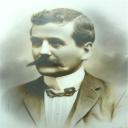Yahoo Answers is shutting down on May 4th, 2021 (Eastern Time) and beginning April 20th, 2021 (Eastern Time) the Yahoo Answers website will be in read-only mode. There will be no changes to other Yahoo properties or services, or your Yahoo account. You can find more information about the Yahoo Answers shutdown and how to download your data on this help page.
Trending News
Is the Queen the head of the church of england because she is religious?
Could the Queen or any other member of the Royal family be head of the Church of England if they are not religious? We know the Queen is religious.
It is well known that Charles believes in many religions and William and Kate do not go to church every week as the Queen does.
So when the time comes can the next monarch be head of the church of England if they do not go to church and are not believers.
9 Answers
- ?Lv 77 years ago
Not because she is religious - she happens to have a very strong faith, but because as the Queen, she is automatically 'Defender of The Faith'. The Faith being the Anglican faith. Prince Charles has expressed a preference to be Defender of Faith. Slightly different - encompassing all Faith.
- capitalgentlemanLv 77 years ago
English, and now British monarchs have been Head of the Church since the 800's. The "Ecclesia Anglicana" was always a bit separate even before Henry VIII.
As it happens, HM is very devout, but that isn't necessary. The Church is part of the Government (in England, and Wales), and vice verso. There is a "system" that makes it all work.
- ?Lv 77 years ago
The one requirement on the monarch is that they have to swear the coronation oath "to defend the Protestant religion by law established". It is also part of the Church of England's constitution, dating back to when it was founded by an egomaniac who wasn't happy that the Pope wouldn't let him do as he liked, that the monarch is its Supreme Governor. So it just goes with the job. The title Supreme Governor, by the way, was very carefully chosen. Henry VIII called himself the Supreme Head, but isn't Christ supposed to be the head of the Church? So it was changed.
Disestablishment (cutting the ties between church and state) is long overdue in my view, and it was done in Wales in 1920, but unfortunately doing it in England would be the knottiest problem known to English legal man. I've looked at what would have to be done - repealing various Acts of Parliament going back centuries, untangling who owns what and putting the ownership of church buildings on a legal footing that doesn't rely on centuries-old common law, rewriting goodness knows how much, working out what to do with the Royal Peculiars - and it's enough to make anyone lose the will to live. So we're stuck with the Queen having a fairly useless title.
But given the wide range of belief within the C of E, and the fact that being Supreme Governor is completely meaningless as it has no real responsibilities (the Archbishop of Canterbury is the real boss, coupled with government by General Synod), being non-religious is no barrier as long as the monarch isn't actively something else.
About the one real job the Supreme Governor has to do is appoint diocesan bishops, and as the Crown Nominations Commission always produces a shortlist of one, even a chimpanzee could do it. Or to be precise, they present the shortlist to the Prime Minister and he recommends the name to the Queen. Until not that long ago it was a shortlist of two names with a strong hint on which one the Church preferred, and the Prime Minister recommended one to the Queen. Gordon Brown, when he was Prime Minister, stopped that on the grounds that he is Church of Scotland and he didn't see why he should be involved in making appointments in a Church he's not even a member of, especially as his own Church is presbyterian and doesn't believe in bishops.
- CloLv 77 years ago
It it part of the monarch's traditional role. Henry VIII formed the Church of England and was the head--and with the exception of Mary I, monarchs have traditionally taken the role. Parliament made it the law that the monarch must uphold the Protestant Succession under Acts of Settlement.
http://www.royal.gov.uk/MonarchUK/QueenandChurch/Q...
http://www.royal.gov.uk/MonarchUK/QueenandChurch/Q...
"In his or her coronation oath, the Sovereign promises to maintain the Church.
The Sovereign must be in communion with the Church of England, that is, a full, confirmed member. "
http://www.royal.gov.uk/MonarchUK/HowtheMonarchywo...
The Act of Settlement of 1701 was designed to secure the Protestant succession to the throne, and to strengthen the guarantees for ensuring a parliamentary system of government.
....the decision was made by parliament to ensure that succession of future sovereigns remained within the Protestant faith. "
- How do you think about the answers? You can sign in to vote the answer.
- Anonymous7 years ago
The Supreme Governor of the Church of England is the monarch and has been (on and off) since Henry VIII broke away from the Catholic Church because the Pope refused ti annul his marriage to Catherine of Aragon. SInce him England has had two Roman Catholic monarchs (Mary I , James II and VII) one also converted on the day before he died (Charles II) but whether he truly knew what he was doing is debatable.
Thhe reason Catholics are still excluded from the throne is because you can't be Suprmed Governor or one church whilst belonging to another.
- ?Lv 77 years ago
It is a traditional role dating back to when Henry VIII broke with Rome over the question of divorcing Catherine of Aragon - despite a bit of to-ing and fro-ing by his daughters, the role has been associated with the reigning monarch ever since. The coronation oath requires the monarch to uphold the (Protestant reformed) religion. I suppose she could have declined, but as the next three in line have all been baptised, I don't imagine any likelihood of dissent for at least a century.
It is the Supreme Head of the Church, but the spiritual role is fulfilled by the Archbishop of Canterbury, and the running of it all is the responsibilty of the General Synod.
Founded by an adulterer (as were many who have held the position - George III had getting on for sixty illegitimate grandchildren) you'll gather piety is no great requirement. The role is only applicable to the Anglican (reformed catholic) Church btw - it does not apply in Scotland.
There is no great necessity for the church to be tied to the state at all in my view (further complicated by the role of the Lords Spiritual) but there is some opposition to this - engagingly referred to as antidisestablishmentarianism.
- TSKLv 77 years ago
Is part of her "job"...More to the UK than the CHURCH of England which ONLY established in England..ONE part of THE UK....with MOST NOT being members of it....12+% of us are CATHOLIC, for starters....Believe she is "religious" as far as someone who is a member of that church can be....Just going to church does NOT make you religious or any BETTER than others....I had an uncle who converted to C of E to "get on" in business..Shows what a serious concern it is....
- ?Lv 67 years ago
Educated English people aren't religious, it's just another "job" like when a pop star promotes a soft drink.





